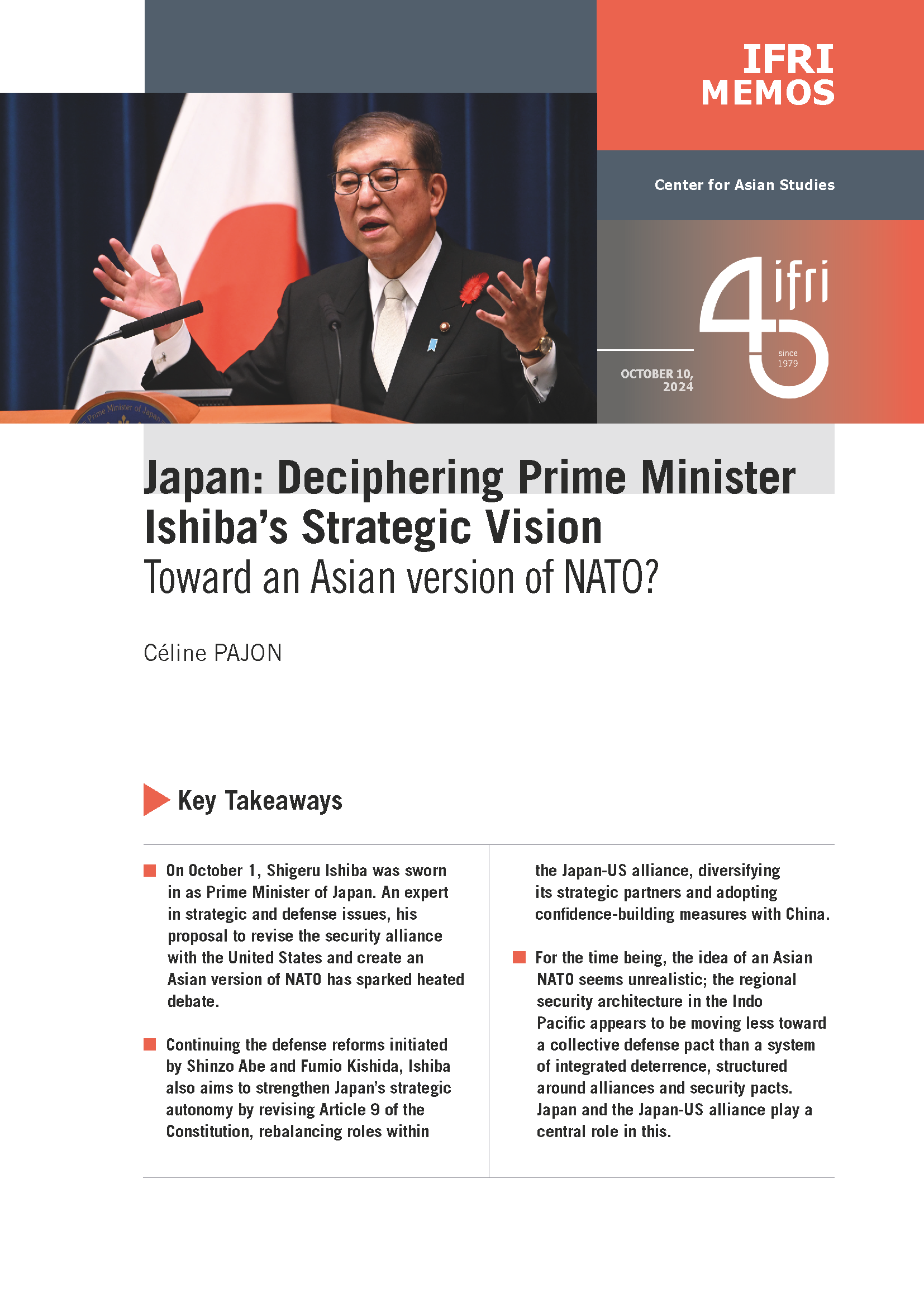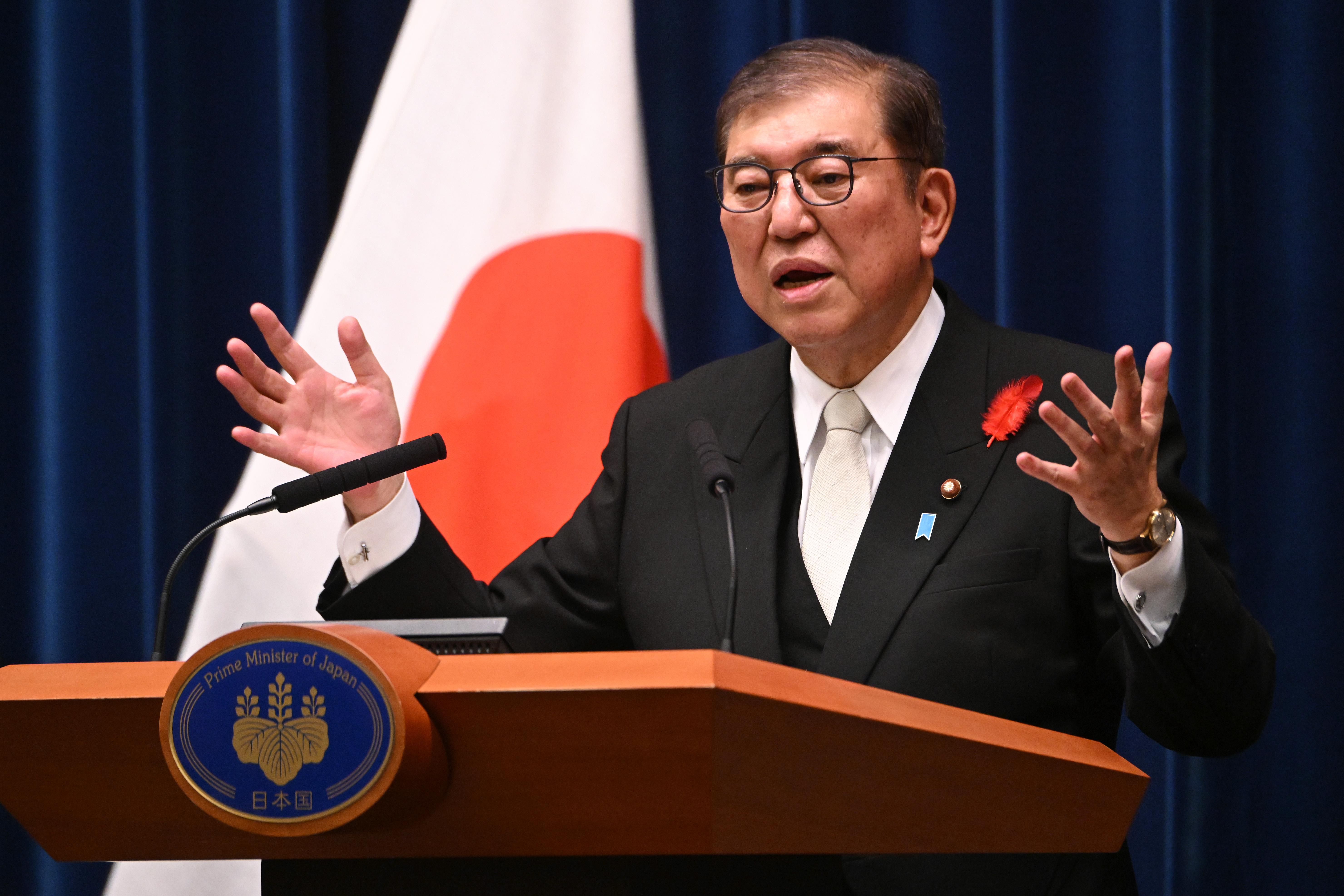Japan: Deciphering Prime Minister Ishiba’s Strategic Vision. Toward an Asian version of NATO?

On Tuesday, October 1, Shigeru Ishiba was sworn in as Prime Minister of Japan. His proposal to revise the security alliance with the United States and create an Asian version of the North Atlantic Treaty Organization (NATO) attracted attention and sparked lively debate.

On October 1, Shigeru Ishiba was sworn in as Prime Minister of Japan. An expert in strategic and defense issues, his proposal to revise the security alliance with the United States and create an Asian version of NATO has sparked heated debate.
Continuing the defense reforms initiated by Shinzo Abe and Fumio Kishida, Ishiba also aims to strengthen Japan’s strategic autonomy by revising Article 9 of the Constitution, rebalancing roles within the Japan-US alliance, diversifying its strategic partners and adopting confidence-building measures with China.
For the time being, the idea of an Asian NATO seems unrealistic; the regional security architecture in the Indo-Pacific appears to be moving less toward a collective defense pact than a system of integrated deterrence, structured around alliances and security pacts. Japan and the Japan-US alliance play a central role in this.

Available in:
Themes and regions
ISBN / ISSN
Share
Download the full analysis
This page contains only a summary of our work. If you would like to have access to all the information from our research on the subject, you can download the full version in PDF format.
Japan: Deciphering Prime Minister Ishiba’s Strategic Vision. Toward an Asian version of NATO?
Related centers and programs
Discover our other research centers and programsFind out more
Discover all our analyses
Opening up the G7 to South Korea to Address Contemporary Global Challenges
The G7’s global influence has diminished as powers like China reshape international governance through initiatives such as BRICS and the Shanghai Cooperation Organisation (SCO). With the G7 now representing just 10 per cent of the world’s population and 28 per cent of global GDP, its relevance is increasingly questioned.
Expanding SPDMM as a pivotal institution in the Pacific – A French perspective
The South Pacific Defence Ministers’ Meeting (SPDMM) is the only forum that brings together defense ministers from the wider South Pacific — including Chile, which is hosting it for the first time. This heterogeneous group of countries with varying resources, capacities, and interests — Australia, Chile, Fiji, France, New Zealand, Papua New Guinea (PNG), and Tonga — are united by their shared determination to strengthen cooperation on maritime security and humanitarian assistance and disaster relief (HADR) activities.
EU’s Derisking From China: A Daunting Task
With economic security as a major concern, the EU has recently turned to “derisking” from China. The EU strategy entails reducing critical dependencies and vulnerabilities, including in EU supply chains, and diversifying where necessary, while recognizing the importance and need to maintain open channels of communication.
Sri Lanka’s NPP Government. From System Change to Structural Compliance
In September 2024, a relative outsider to Sri Lanka’s two-party-dominated political system, Anura Kumara Dissanayake, won the presidential elections. The anti-establishment, populist movement he represented, the National People’s Power (NPP), went on to receive an overwhelming mandate in the November 2024 general elections, winning 159 seats in a 225-member parliament.










